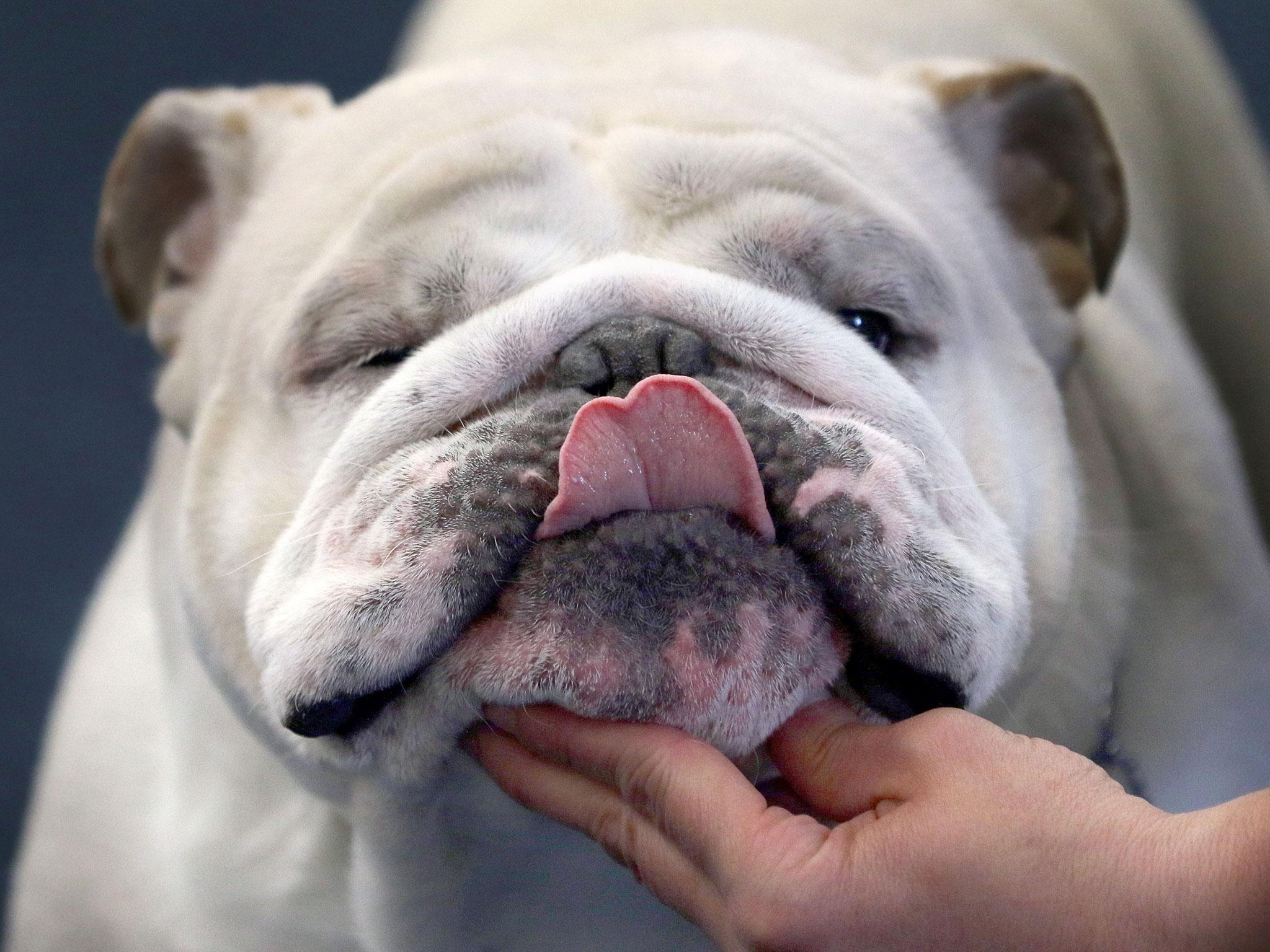English bulldogs now so inbred their appalling health problems will not improve
'The English bulldog has reached the point where popularity can no longer excuse the health problems that the average bulldog endures in its often brief lifetime'

Your support helps us to tell the story
From reproductive rights to climate change to Big Tech, The Independent is on the ground when the story is developing. Whether it's investigating the financials of Elon Musk's pro-Trump PAC or producing our latest documentary, 'The A Word', which shines a light on the American women fighting for reproductive rights, we know how important it is to parse out the facts from the messaging.
At such a critical moment in US history, we need reporters on the ground. Your donation allows us to keep sending journalists to speak to both sides of the story.
The Independent is trusted by Americans across the entire political spectrum. And unlike many other quality news outlets, we choose not to lock Americans out of our reporting and analysis with paywalls. We believe quality journalism should be available to everyone, paid for by those who can afford it.
Your support makes all the difference.The English bulldog is now so inbred that there is little chance of improving its notoriously poor health, geneticists have concluded.
The lead researcher of a study condemned dog breeders and owners, saying more people appeared to be “enamoured with its appearance than concerned about its health”.
English bulldogs suffer from a range of horrendous health problems.
Its excessive wrinkles are prone to infection unless they are regularly cleaned. The dog also has breathing problems due to its narrow nostrils and a number of eye conditions that cause chronic irritation and pain. Its deformed spinal bones that can also lead to incontinence and the loss of the use of its back legs.
Attempts have been made by some breeders to improve the animal's’ health.
However, a study published in the journal of Canine Genetics and Epidemiology found this would be difficult to do from the existing gene pool because it has been inbred to an extreme degree.
The lead author of the paper, Professor Niels Pedersen, said: “The English bulldog has reached the point where popularity can no longer excuse the health problems that the average bulldog endures in its often brief lifetime.
“More people seemed to be enamoured with its appearance than concerned about its health.
“Improving health through genetic manipulations presumes that enough diversity still exists to improve the breed from within, and if not, to add diversity by outcrossing to other breeds.
“We found that little genetic 'wiggle room' still exists in the breed to make additional genetic changes.”
The breed began from just 68 individuals sometimes after 1835 and has experienced artificial genetic bottlenecks created by breeders to produce a supposedly desirable appearance.
Professor Pedersen, of the University of California, said the rate of genetic changes had been “particularly rapid over the last few decades”.
“Breeders are managing the little diversity that still exists in the best possible manner, but there are still many individuals sired from highly inbred parents,” he said.
“Unfortunately eliminating all the mutations may not solve the problem as this would further reduce genetic diversity.
“We would also question whether further modifications, such as rapidly introducing new rare coat colours, making the body smaller and more compact and adding more wrinkles in the coat, could improve the bulldog's already fragile genetic diversity.”
The study was the first time DNA analysis has been used to assess the English bulldog’s genetic diversity.
Breeders in Switzerland have started to cross the English bulldog with the Olde English Bulldogge – ironically an American breed – to create what is called the Continental Bulldog, which they hope will be healthier.
But this has proved controversial in the dog breeding world, with some believing this dog will no longer be a true English bulldog.
Join our commenting forum
Join thought-provoking conversations, follow other Independent readers and see their replies
Comments